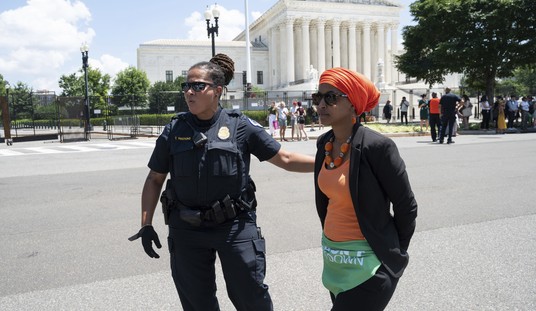
Mike Bloomberg speaks to the media, Tuesday, Nov. 26, 2019 in Phoenix. Billionaire Michael Bloomberg, a late entrant in the already crowded race for the Democratic presidential nomination, was set Tuesday to file to run in Arizona’s presidential primary. (AP Photo/Rick Scuteri)
This Saturday, Nevada Democrats gather for their caucuses. Next Friday, South Carolina, allegedly Joe Biden’s ‘firewall’ state because he has more black friends that Tom Steyer, holds its primary. March 3 is Super Tuesday, a cornucopia of fourteen state and one territorial primary along with one for ‘Democrats Abroad’ (presumably this covers all the Democrats who left the country in either 2000 or 2004 or 2016 and didn’t have the ambition to return).
With a field of a half-dozen candidates, Super Tuesday should not be immediately decisive particularly when one of the candidates, Michael Bloomberg, hasn’t competed in any of the contests so far. But this year is not a usual year. The Democrat field is incredibly weak, it might be the least consequential field put forward by any political party in a generation, and I say that fully cognizant of how weak the GOP field was in 2008 and 2012.
The problem is that all of the Democrat candidates are nearly out of money…except one.
Joe Biden, Pete Buttigieg, Amy Klobuchar and Elizabeth Warren each started the month scraping perilously close to the bottom of their campaign bank accounts, posing an existential threat to their candidacies as the Democratic primary goes national.
…
The cash crunch comes at a critical time in the race, with nearly one-third of the delegates available in the primary up for grabs on Super Tuesday on March 3 — and only a handful of candidates able to marshal resources to advertise to voters in those 14 states. It’s why super PACs, demonized at the beginning of the 2020 primary, are suddenly jumping in to assist most Democratic candidates, and it’s why the campaigns are now making ever more urgent pleas for financial help.
Joe Biden started the January with $8.9 million and ended with $7.1. That is barely the war chest one expects a senate candidate to have.
Elizabeth Warren is dead in the water. She started January with $11.0 million and ended it with $2.3. At that burn rate, she is totally broke after Super Tuesday, if she isn’t already. Politico says here payroll is over $8 million per month.
Pete Buttigieg had $6.2 million to start January and has increased that to $6.6 million.
Amy Koluchbar is in the same position as Elizabeth Warren. She has gone from $5.5 million to $2.9 million.
The picture is clear. Unless one or more of these four breaks out of the field on Super Tuesday, they are all finished within a couple of weeks. The Super PAC factor is largely bullsh** because Super PACs are where major money goes to back a winner when they can’t give anymore by bundling or other means. If these people aren’t raising money from regular donors, they aren’t going to attract Super PAC support.
Back when Bloomberg entered the race, I made this prediction:
I think there is a certain sophistication to his strategy. If Bloomberg enters the race for the early states now, his money does him no good and the surgical removal of his personality is a killer. If he waits until Super Tuesday to jump in, then his money is all that’s important. Plus the more people see Elizabeth Warren the less they like her, Bernie Sanders could easily be a corpse by then, and Joe Biden will be in a state of collapse. Bloomberg obviously thinks that he can pick up the wreckage of Biden’s campaign plus appeal to suburban voters who are hearing their 401(k) plans scream for mercy at the thought of Warren winning. He can essentially rope-a-dope the top figures in the pack and present himself as the moderate, centrist candidate after they’ve shown just how far left and anti-American they are.
The only downside to the plan is that Bloomberg actually has to find people willing to vote for him.
I’m convinced more than ever that this contest comes down to Sanders and Bloomberg and that battle begins in earnest after March 3. While Sanders can’t match Bloomberg in dollars, the question is whether Bloomberg has a core constituency who will come out to vote for him and are there enough NeverBernie voters to keep Sanders from winning a plurality, if not an outright majority, of delegates? Or will Bloomberg be allowed to buy the pot and voters be damned?














Join the conversation as a VIP Member